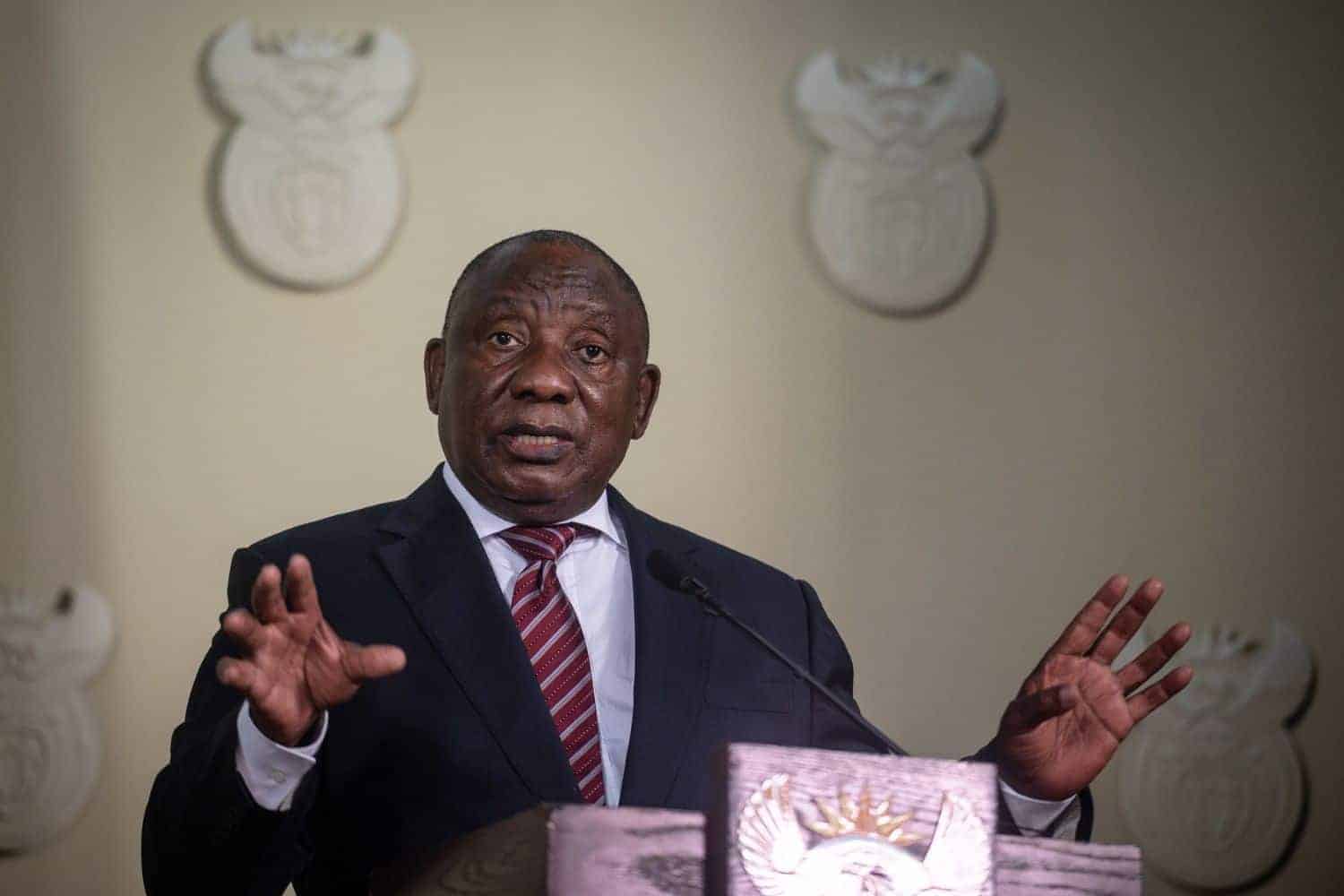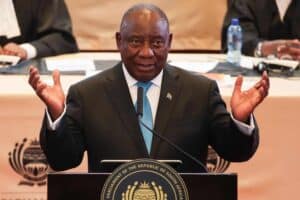The president assumed the low-belly crouch that in the animal jungle signals deference, even submissiveness.

President Cyril Ramaphosa may yet pull off a diplomatic coup. He has signalled that the ANC is willing to compromise. Perhaps even grovel. Not with the US, naturally. No, the olive branch is being extended to the South African Communist Party (SACP).
Speaking this week at the SACP’s national congress, the president assumed the low-belly crouch that in the animal jungle signals deference, even submissiveness.
The ANC, he said, fully recognised the SACP’s autonomy and acknowledged that its members who also belonged to the ANC were “full members of our movement”. But, he added, those rights came with obligations.
This petty, factional sideshow is instructive. It reveals much about Ramaphosa’s – and the ANC’s – priorities at this moment of national crisis. Their attention is not on the wrecking ball heading South Africa’s way.
Admittedly, Ramaphosa has not been entirely idle. On Thursday – the very day the devastating 30% tariffs kicked in – he telephoned President Donald Trump. It would, of course, be wonderful if the mercurial Trump had a change of heart in response to his tête-à-tête with Ramaphosa.
That’s wishful thinking. Just last week, he made his feelings clear: he’s unlikely to attend November’s G20 summit in Johannesburg – where Ramaphosa is supposed to hand over the presidency to him – citing as reason Pretoria’s “very bad policies”.
It’s these policies, far more than the trade deficit, that lie at the heart of the standoff. Washington’s message has been clear for months, relayed repeatedly to our foreign and trade ministries. Initially, discreetly by the DA delegation that visited Washington in March, then publicly by the Afrikaner civic organisations that followed.
ALSO READ: National Dialogue will go ahead despite withdrawal of foundations, Ramaphosa says
The US wants four concessions:
- B-BBEE – not scrapping this controversial policy, which the polls tell us most South Africans reject, but amending it to exempt US companies from having to surrender 30% ownership and instead allowing them to contribute in some other way to economic upliftment.
- Expropriation Act – not repealing the Act but amending it to make legally unambiguous that expropriation without compensation will not occur.
- Kill the Boer, kill the farmer chant – not banning it, but the ANC unambiguously condemning it, something Ramaphosa has never been able to bring himself to do.
- Farm attacks – not declaring whites a protected species, but making such attacks a priority crime.
These are modest, sensible asks. Yet they’ve been met with resistance from within an ANC that remains in thrall to revolutionary aspirations.
In other words, the ANC would rather see the country ground down than let go of its delusions.
It is ready to sacrifice jobs, trade, growth and diplomatic standing to preserve the illusion that it and its communist and trade union partners are still engaged in a revolutionary struggle, rather than face the fact that it and its GNU coalition partners are responsible for a total failure in governance.
For the sake of South Africa, as well as in the long-term interests of the ANC, if Ramaphosa is going to compromise, it patently is better to do so with Trump than with the SACP.
And for the DA, which has linked its fortunes to the ANC, if it is ever going to stand firm and not compromise by letting the ANC off the hook yet again, now is the moment.
Support Local Journalism
Add The Citizen as a Preferred Source on Google and follow us on Google News to see more of our trusted reporting in Google News and Top Stories.






